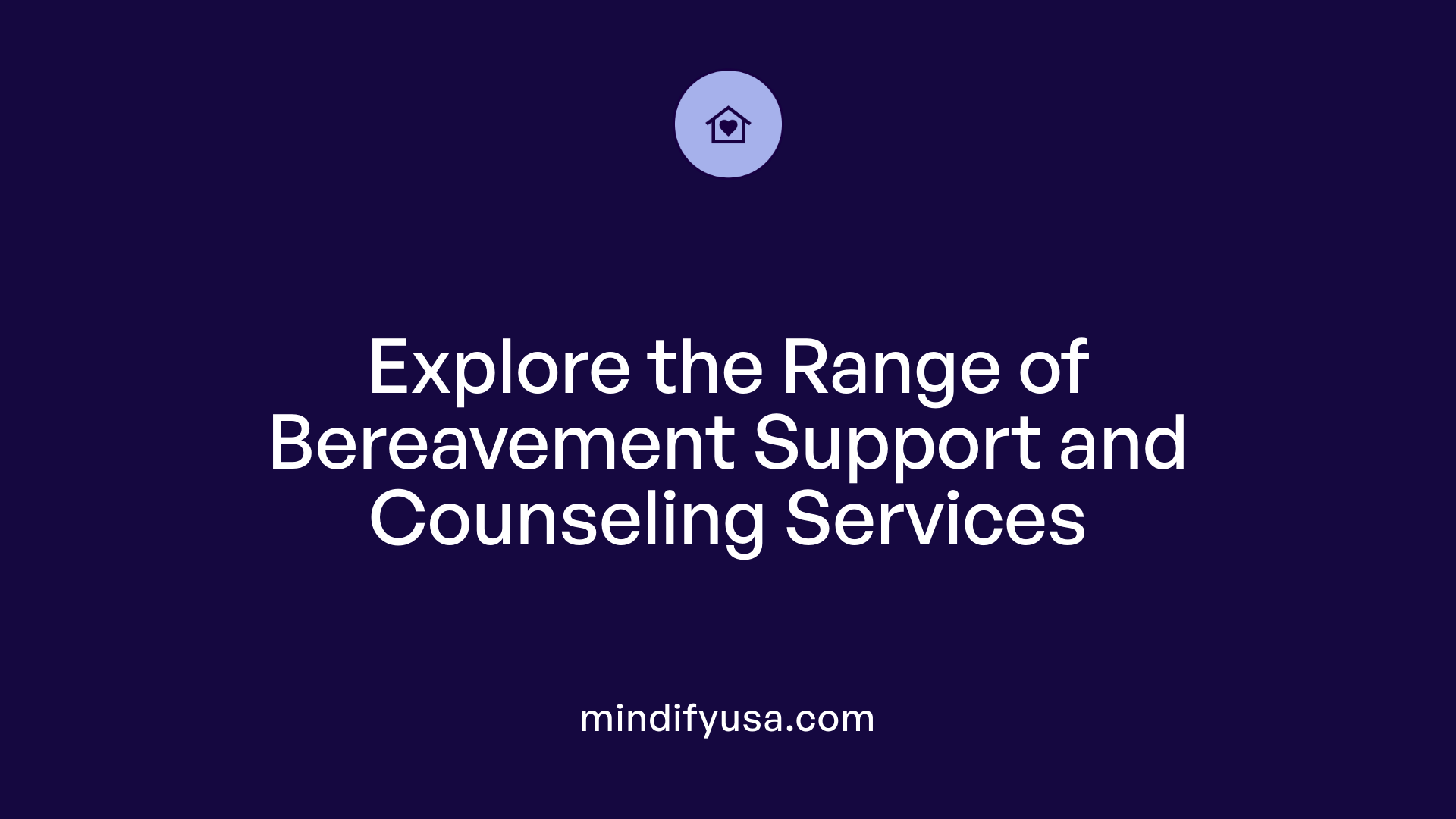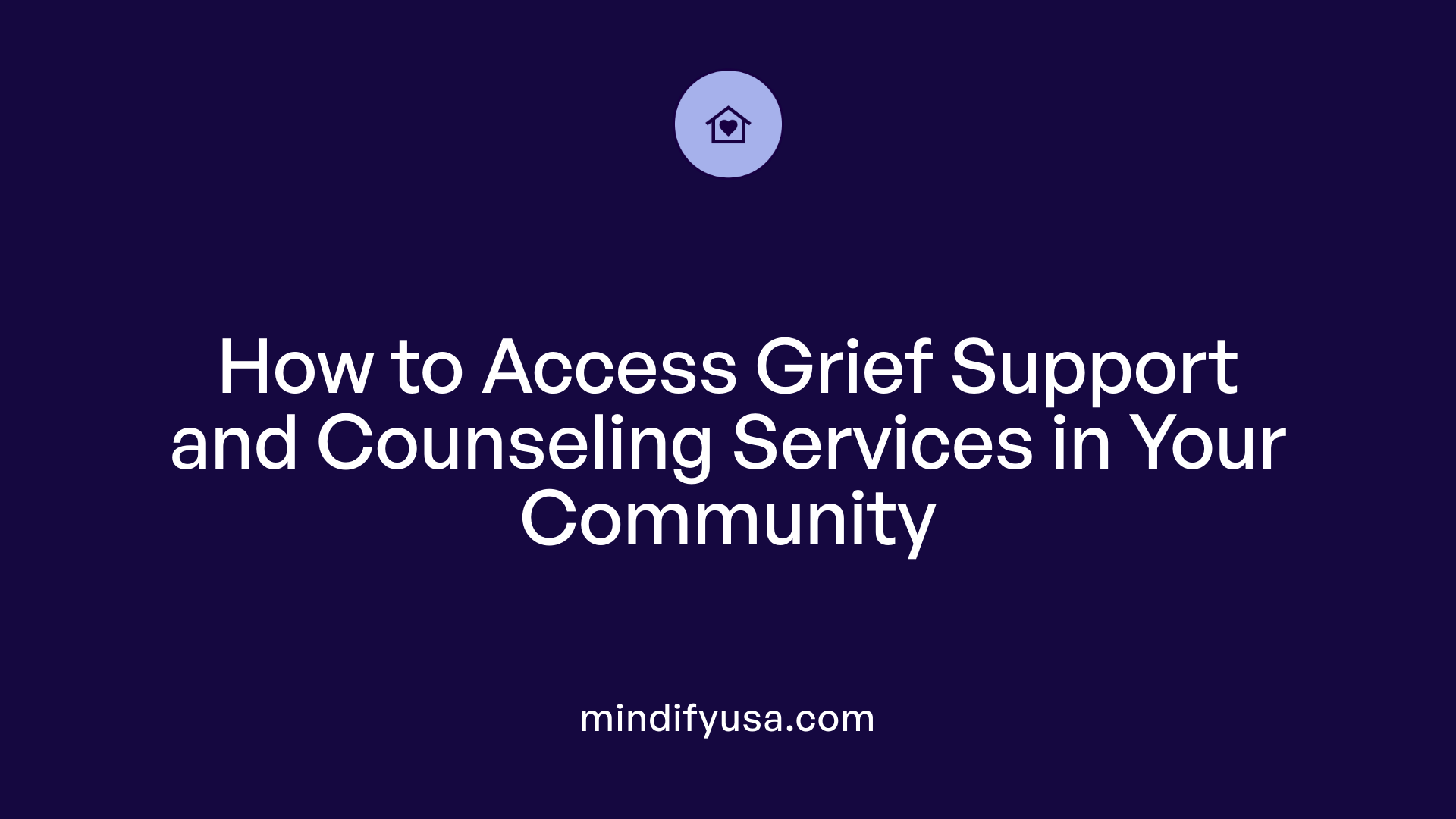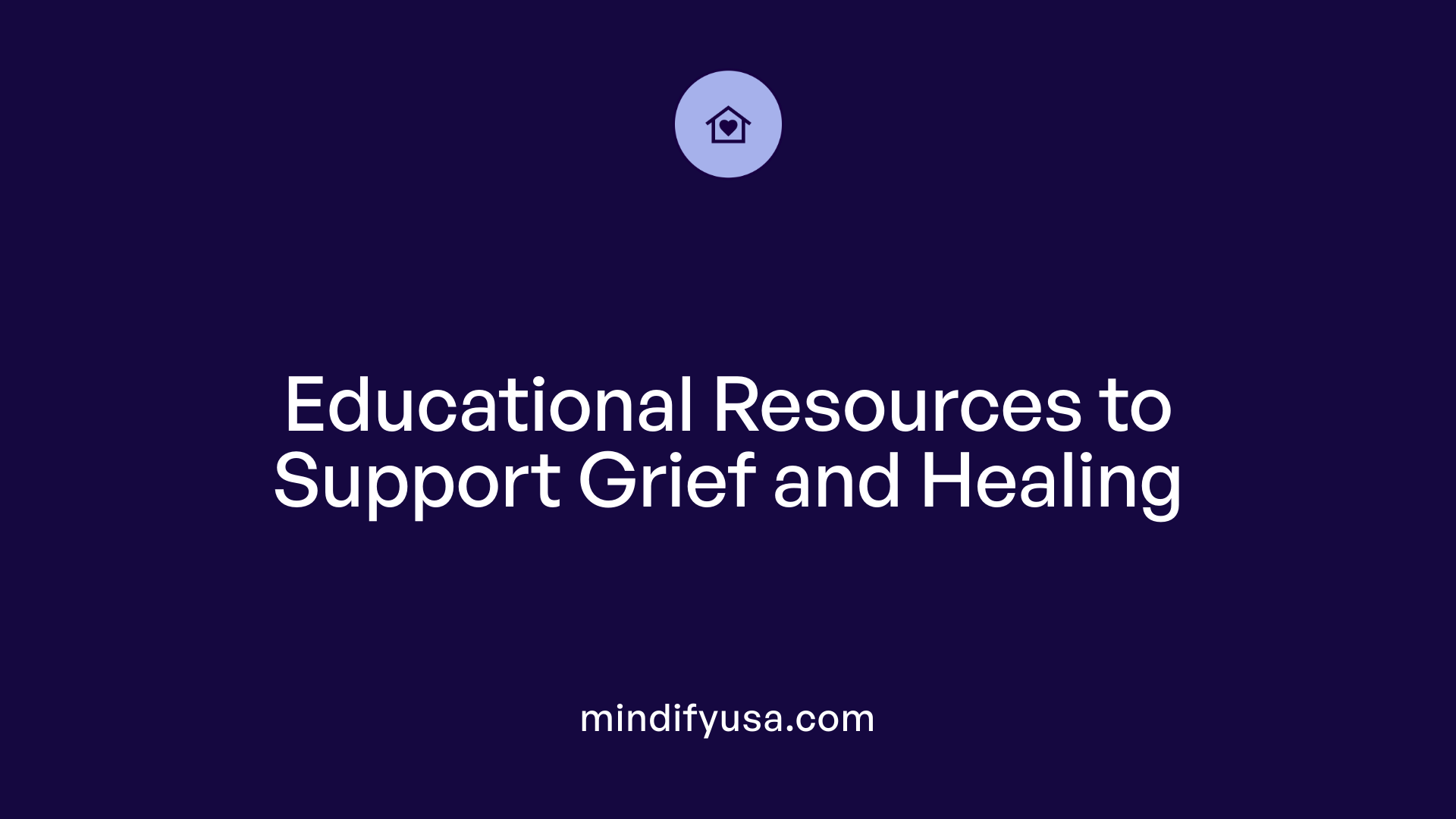Understanding the Importance of Grief Support in Hospice Care
Losing a loved one is among life's most challenging experiences. Hospice organizations recognize this profound reality and offer comprehensive grief counseling and support options tailored to meet the emotional, spiritual, and practical needs of families. These services aim to provide ongoing comfort and guidance, beginning from the time of diagnosis or hospice admission and extending through months after the loss. This article explores the range of bereavement support available through hospice providers, how families can access these services, and the educational resources that facilitate healing and understanding.
Types of Bereavement Support and Counseling Services
 Hospice organizations provide a variety of bereavement support and counseling services designed to help families cope with their loss. These services often include individual grief counseling sessions led by trained professionals such as social workers, chaplains, and bereavement coordinators. Such personalized support aims to address emotional, spiritual, and practical needs during the mourning process.
Hospice organizations provide a variety of bereavement support and counseling services designed to help families cope with their loss. These services often include individual grief counseling sessions led by trained professionals such as social workers, chaplains, and bereavement coordinators. Such personalized support aims to address emotional, spiritual, and practical needs during the mourning process.
Support groups are another prominent component, offered for both adults and children. These groups facilitate shared experiences and mutual support, helping individuals understand that they are not alone in their grief. Many hospices also organize memorial events and remembrance gatherings, providing participants with opportunities to honor their loved ones through ceremonies, memorial services, and community remembrance activities.
Educational workshops are frequently available, offering information about the grief process, coping strategies, and life adjustments. Accompanying these are resources such as pamphlets, online materials, and support lines that ensure ongoing assistance. Additionally, practical issues like funeral planning, legal matters, and financial tasks are addressed through specialized support services.
These comprehensive programs generally begin at the time of hospice admission and extend for a minimum of 13 months following a loved one's death, ensuring families receive continuous and tailored support throughout their journey of grief. By offering this extensive range of services, hospice organizations aim to support emotional resilience, foster remembrance, and facilitate healthy coping strategies for grieving families.
Accessing Grief Support and Counseling Services
 Families seeking grief support from hospice services can start by reaching out directly to their local hospice providers. Most hospices offer a variety of free bereavement programs that include individual counseling, support groups, and family sessions. These services are designed to help individuals navigate grief at their own pace and often extend up to 13 months after a loved one's passing.
Families seeking grief support from hospice services can start by reaching out directly to their local hospice providers. Most hospices offer a variety of free bereavement programs that include individual counseling, support groups, and family sessions. These services are designed to help individuals navigate grief at their own pace and often extend up to 13 months after a loved one's passing.
Support options cater to all ages, with specialized programs for children and teens, such as camps, youth groups, and expressive arts workshops. Hospice organizations also facilitate memorial events and educational workshops that promote healing and resilience.
Timing is flexible; support begins immediately after the initial contact and continues during and after the illness. Many programs encourage early engagement to better cope with anticipatory grief and ongoing loss.
In addition to hospice facilities, community resources like online support groups, websites such as Grief.com, and national organizations provide accessible ways for support outside formal hospice care. Overall, these services aim to offer comfort, guidance, and community connection through compassionate support from trained professionals.
Educational Resources Supporting Grief and Healing
 Hospice organizations and community groups offer a variety of educational tools and programs to support families navigating grief after losing a loved one. These resources include workshops and support groups that cater to different age groups and emotional needs. For adults, there are in-person and virtual support groups focused on mourning, coping skills, and healing, often facilitated by trained counselors. Many programs also provide specialized support for children and teens, such as Camp Erin, Camp Good Grief, and the Wave Riders program, all designed to foster expression and resilience.
Hospice organizations and community groups offer a variety of educational tools and programs to support families navigating grief after losing a loved one. These resources include workshops and support groups that cater to different age groups and emotional needs. For adults, there are in-person and virtual support groups focused on mourning, coping skills, and healing, often facilitated by trained counselors. Many programs also provide specialized support for children and teens, such as Camp Erin, Camp Good Grief, and the Wave Riders program, all designed to foster expression and resilience.
Online grief resources are widely available, offering accessible and flexible support. Websites like Grief.com and the Hospice Foundation of America provide articles, recorded talks, and interactive tools to help individuals understand and process their grief. Educational materials such as brochures, booklets, and downloadable resources further aid in explaining the stages of grief, legal and financial tasks, and ways to commemorate loved ones.
Moreover, numerous organizations conduct community outreach and educational workshops that teach coping strategies, facilitate remembrance events, and enhance understanding of the grief process. These initiatives often include training sessions for caregivers and community volunteers to better support grieving individuals.
Special programs for children and teens, such as youth grief camps and school-based support groups, are integral in helping young individuals deal with loss in a healthy, supportive environment. These programs emphasize arts, storytelling, and peer support to foster healing.
Overall, these educational resources create a comprehensive network of support aimed at fostering understanding, resilience, and hope for those coping with grief. They are accessible in various formats, including online platforms, community centers, and through healthcare providers, ensuring that help is available whenever it is needed.
The Role of Hospice in Supporting Families Beyond the Patient's Passing
Hospice care extends its support well beyond the patient’s passing by providing comprehensive bereavement services designed to assist families through their grief process. Families are offered ongoing support for up to 13 months after a loved one’s death, ensuring help is available through different stages of mourning.
Support services are tailored to meet diverse needs, including those of children, teens, and culturally specific groups. Specialized programs such as Camp Erin for grieving children and Wave Riders support youth's emotional recovery, while support groups in multiple languages help accommodate diverse populations.
Practical aspects of grief are also addressed. Families receive guidance on funeral arrangements, legal issues, and financial tasks, easing the burden during an already difficult time. These services are free of charge and often include educational materials, memorial events, and community outreach activities.
Trained staff, including counselors, chaplains, and social workers, provide emotional and spiritual guidance. They facilitate individual counseling, support groups, and virtual or in-person meetings, ensuring personalized care. Support options also involve community education efforts, such as workshops and outreach programs, which foster greater understanding of the grief process.
Accessible resources like online support, informational mailings, and crisis services are available to help families cope, especially in urgent situations like sudden deaths or traumatic losses. These initiatives exemplify hospice’s commitment to holistic family support, fostering resilience and hope amidst loss.
| Service Type | Duration | Supported Populations | Additional Details |
|---|---|---|---|
| Bereavement counseling | Up to 13 months | All ages, children, cultural groups | Includes individual, family, and group settings |
| Support groups | Varies, including 6-week series | Diverse demographics | In-person, virtual, multilingual options |
| Practical support (funeral, legal) | Ongoing | All families | Assistance with planning and paperwork |
| Community outreach and education | Continuous | Broad community | Workshops, remembrance events, informational sessions |
By combining emotional, spiritual, practical, and community support, hospice programs play a vital role in guiding families through their grief journey, helping them find healing and a means to honor their loved ones.
A Compassionate Path Through Grief
Navigating the loss of a loved one is a deeply personal journey, but hospice organizations stand ready to guide families through this difficult time. With a broad array of services—ranging from individual counseling and support groups to educational workshops and community programs—families are empowered to mourn, heal, and find renewed strength. The availability of these services often extends well beyond the immediate aftermath of death, recognizing that grief is an ongoing process. Accessing hospice bereavement support is straightforward; families are encouraged to reach out early to their local providers to take advantage of these compassionate offerings. Ultimately, hospice support services foster comfort, understanding, and connection, helping families honor their loved ones and find peace along their healing path.
References
- Hospice Grief Support | Bereavement Counseling - Compassus
- Grief, Bereavement, & Family Support – Florida Hospice & Palliative ...
- Grief Support - Community Hospice
- Grief and Support Services
- Bereavement Programs - Center for Hospice Care
- Grief Support - Hospice of Northwest Ohio
- Hospice Bereavement Service Delivery to Family Members and ...
- Grief Journey Program - Hospice of Michigan
- Grief Support for Hospice Families
- Grief Support - Life-Changing Care for More Than 40 Years






































































































